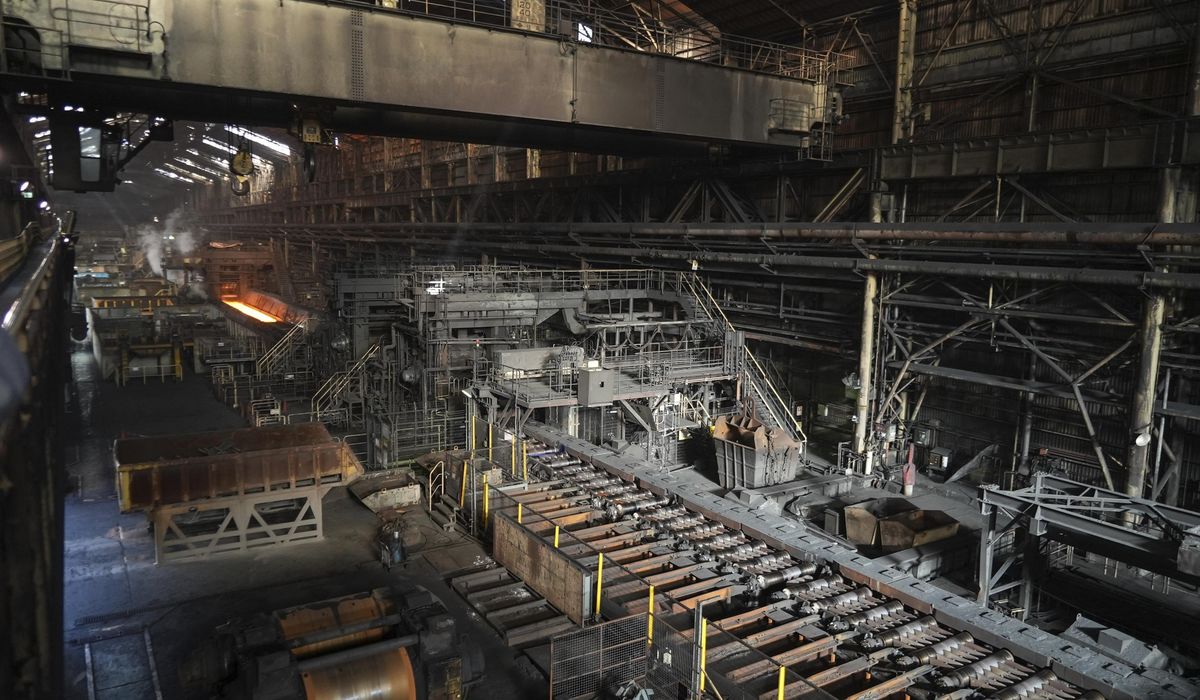


TOKYO — America’s two most powerful allies in the Indo-Pacific have so far responded with low-key prudence after President Trump moved forward on his threat to impose 25% tariffs on imports of aluminum and steel products, effective next month.
The grace period offered by the new administration seems designed to invite intense diplomatic discussions and possibly dealmaking on other fronts.
While both have largely refrained from direct criticism of the policy shifts in Washington, Japanese officials said they would request an exemption on the tariffs on the two metals, while South Korea said its government would convene an “export strategy meeting” next week.
Both Japan and South Korea are major exporters of the metals, particularly steel, to the U.S., although U.S. trade experts say the Trump policy is largely designed to punish China, the world’s biggest producer of both steel and aluminum.
According to 2024 trade data collated by Reuters, South Korea was the fourth largest exporter of steel to the United States, followed by Japan in fifth place. The top three spots for the year were taken by Canada, Brazil and Mexico.
The low-key response from the East Asian allies was in sharp contrast to the angry reaction from other U.S. allies to Mr. Trump’s tariff blitz. Mexico, Canada and the European Union have all condemned the administration’s protectionist shift and have prepared a lengthy list of politically sensitive U.S. exports that would be targeted if the American tariffs go into effect.
Data suggests that neither of the two Asian manufacturing powerhouses – especially South Korea – have large space for retaliatory maneuvers — if they choose to confront Mr. Trump.
Prior to Mr. Trump, the average U.S. trade tariff rate was 3.3%. Japan’s rate was 3.7%, while South Korea’s was a whopping 13.4%.
Making the job of the diplomats assigned by both capitals to Washington D.C. even trickier, Seoul and Tokyo are caught in a strategic and economic bind.
Both are manufacturing powerhouses with export-based economies. Both have long-term trade surpluses with the U.S. Both, however, are reliant upon the U.S. for their security.
The two have separate mutual defense treaties with the U.S. and are home to large contingents of American forces.
While the Asia neighbors face similar challenges in their relations with the U.S., they do not – unlike the European economies that negotiate on trade as a bloc through the European Union — speak with a unified voice.
These restraining factors, as well as long traditions of political and diplomatic prudence, may be why neither capital has threatened retaliatory steps against U.S. exports and producers. China, by contrast, has already announced higher tariffs and other moves against American companies doing business there.
The Japanese government’s top spokesperson, Chief Cabinet Secretary Yoshimasa Hayashi told reporters Wednesday that Tokyo has formally requested an exemption via Japan’s Washington embassy .
Earlier, Prime Minister Shigeru Ishiba, who met with Mr. Trump last week in a meeting that has been positively assessed in both capitals, told the Diet, “We will take necessary measures, including lobbying the United States for an exemption.”
In Seoul, South Korean acting President Choi Sang-mok said his government will discuss support measures for businesses and explore ways to diversify export markets and “minimize” the impact of the looming American tariffs. He did not say retaliatory measures were being planned against U.S. products, telling reporters only that “uncertainty in the global trade environment is increasing.”
But with South Korea in the midst of a major political crisis, Mr. Choi has a weak policymaking mandate. The nation’s Constitutional Court is currently holding hearings over whether or not to uphold the impeachment of President Yoon Suk Yeol, following his shock martial law decree on Dec. 3.
Mr. Trump has indicated that overseas steelmakers can bypass the upcoming trade tariffs by investing and producing inside the U.S., but has also said he was weighing additional tariffs on foreign carmakers.
South Korea’s Hyundai Steel, an affiliate of carmakers Hyundai and Kia, signaled in January that it was considering plans to build a steel mill in the U.S.
Japan’s flagship steelmaker Nippon Steel has, since late 2023, been seeking to acquire financially troubled U.S. Steel – a deal nixed by the Biden administration on national security grounds.
That decision shocked Japan Inc. and Japan as a whole: The country is not just an American ally but is also currently the largest single national investor in the U.S.
Mr. Trump has not overturned the Biden administration’s stance. However, he has suggested that Nippon Steel could make a major investment in U.S. steel, without taking a controlling stake.
• Andrew Salmon can be reached at asalmon@washingtontimes.com.
